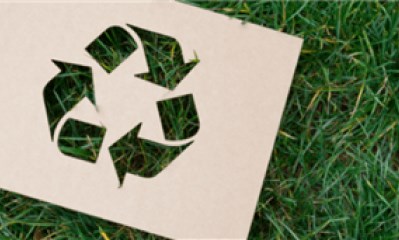Welcome back to the Dispotech blog. Today we are going to cover a very interesting topic: the proposal of the UK and more specifically of the NHS (the country's national health system) to use recyclable PPE (Personal Protective Equipment) to reduce pollution. To delve deeper into the subject we are going to avail ourselves of an article published on the BBC website, bbc.com.
Every month, roughly 129 billion disposable masks are used (and subsequently thrown away) worldwide. And it takes our ecosystem about 450 years to dispose of just one.
This is the result of some alarming studies which immediately make us think about the urgent need to recycle PPE - now more than ever, being in a pandemic time. The source article reports figures relating to the UK alone, which stands at 55 million masks being used every day.
The Welsh Government has set an ambitious target: to reach a zero waste target by 2050. In this BBC article, a recycling expert is interviewed who suggests to the NHS to start recycling. The expert's name is Mat Rapson and he is the CEO of Thermal Compaction Group (TCG), a Cardiff-based company that is, among other things, transforming hospital waste into new masks - using up to 65% of recycled materials.
Usually, in the UK, the 19 billion masks used in a year are either incinerated (which produces carbon emissions causing global warming) or sent to a landfill. Rapson identified the huge problem, which is why he and his company have been working for some time with seven UK hospitals which use thermal heating devices to melt PPE. TCG recycles disposable masks, gowns and curtains at 300°C, sterilising all pathogens and recycling 300,000 defective masks every month, avoiding harmful disposals. The company then processes the resulting material into 1 metre blocks made of 99.6% polypropylene (the equivalent of 10,000 masks). Polypropylene can be used to make plastic chairs, buckets, tool boxes.
A mask takes about 450 years to decompose, seriously affecting the environment. According to Rapson, PPE which is not necessarily disposable needs to be recovered and recycled in order to extend its life.
Linda Ball, CEO of Upcycled Plastics, talked about the company's commitment to manufacturing masks from plastic recovered from the sea. Ball also said that the NHS is currently the largest consumer of disposable PPE in the UK and should do all it can to significantly reduce its environmental impact by choosing recycled products. She went on to acknowledge that plastics are the most serious problem in the medical industry, along with shipments of goods from China which cause a considerable amount of pollution.
It is however difficult to recycle a mask as it is made up of several different components, and not all of them are made of the same type of plastic. Unfortunately, such unusual recycling processes are still uncommon and difficult to implement, but at the moment they seem to be the only solution to the problem.
“The underlying premise of circular economy is to keep all products in the loop as long as possible," said Professor Gary Walpole of Swansea University. Walpole points out that the massive energy use required to produce plastics creates an incentive in reusing them several times over, while also saving raw materials. Less production also means less carbon emissions. But despite the urgency of the problem, Walpole admits that convincing private individuals to adopt this approach is very difficult.
What is your opinion on the matter? Tell us what you think, contact the Dispotech team.


















